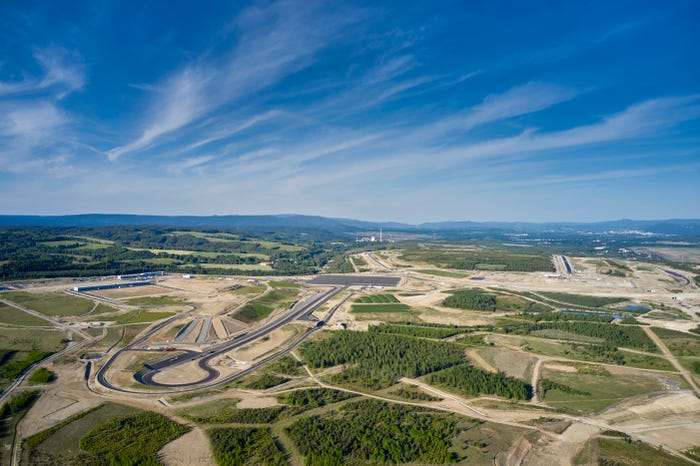BMW Opens $333M Self-Driving Cars Test Facility
The innovation hub promises to reset the needle in terms of test facilities for automated driving

BMW has officially opened a massive new testing facility dedicated to the development of automated and autonomous cars.
The Future Mobility Development Center, based in Sokolov in Karlovy Vary in the Czech Republic, is the giant German automaker’s largest test facility in the world and covers more than 1,482 acres of land.
Its state-of-the-art features have not come cheap, with the company admitting it has invested around $333 million in the project.
Once an area renowned for mining, Sokolov will now play host to an innovation hub that promises to reset the needle in terms of test facilities for automated driving. Around 100 BMW staff will be based there, with many more jobs created in the wider area as a result of the initiative.
The specific site has been built from the ground up, with work starting in 2024, and will ultimately consist of a handful of test tracks to replicate different driving situations, office buildings, workshops and a control center, all geared toward the development and testing of autonomous vehicles.
Highways and interstate roads have been recreated, along with tunnels, bridges and urban road layouts, to provide testing scenarios that are as comprehensive as possible. Among the distinct features are road signs from across the world and poor road surfaces, which obviously present specific challenges for autonomous vehicles.

Frank Weber, BMW Board Member for Development, explained the significance of the facility. “With our new Future Mobility Development Center, we have created a one-of-a-kind test site, designed exclusively for the highly demanding testing of automated driving and parking up to level 4,” he said. (Level 4 is defined by the Society of Automotive Engineers as when a car drives itself in specific locations.)
He continued: “We test all possible driving conditions with maximum flexibility and tremendous efficiency: city, countryside, freeway, as well as automated parking.”
But according to Weber, there is one important point that has been factored into the development of Sokolov in particular. “We can run our test modules one after the other without stopping. This makes our testing as realistic, reliable, and customer-oriented as possible,” he said.
This is key because the development of self-driving cars often requires racking up massive mileages to collect as much data as possible, which can become tedious for human drivers, leading to errors.
The opening of Sokolov comes at a pivotal time for BMW’s autonomous vehicle program. Its first production car with Level 3 capability, the 7 Series, is due to go on sale later this year. Its chief rival Mercedes is already offering its Level 3 tech, Drive Pilot, in Germany and Nevada and California in the U.S.
About the Author
You May Also Like








